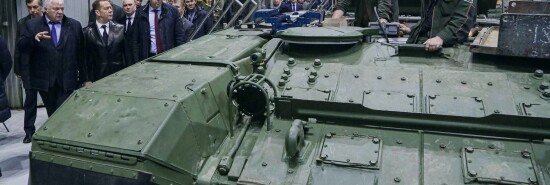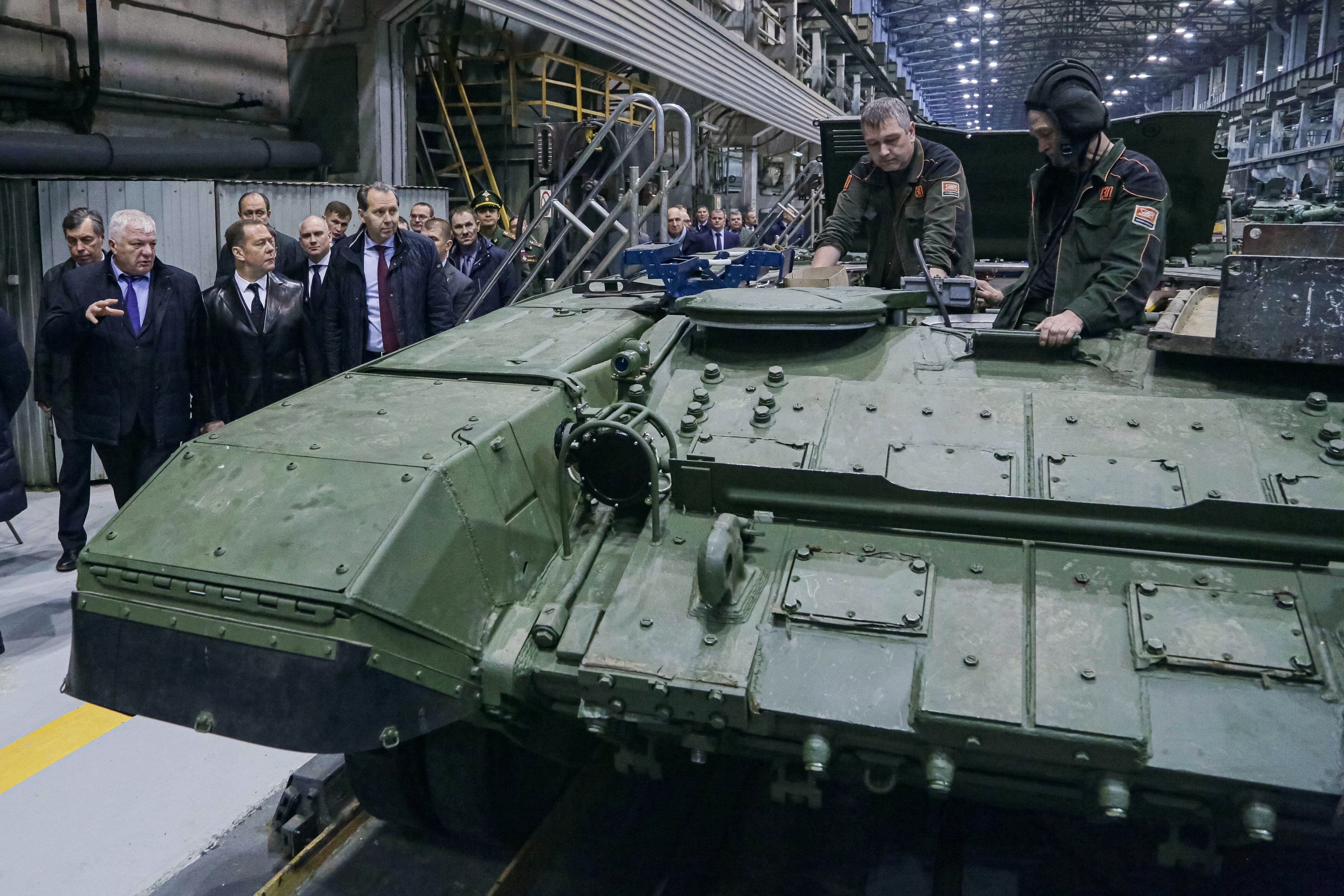
Russian economy faces growing long-term problems
Brady Knox
Video Embed
Russia’s economy is suffering and could face long-term problems due to Western sanctions stemming from its invasion of Ukraine.
A report from the Wall Street Journal, written by journalist Evan Gershkovich, who was arrested just two days after its publication on espionage charges, predicted that the Russian economy is beginning to feel some of the worst effects of sweeping sanctions imposed on it by Western powers. Inflation, a labor shortage, and a brain drain have all begun to take effect, with the government running a deficit and several industries struggling in the increasingly isolated economy.
RUSSIA DETAINS WALL STREET JOURNAL’S EVAN GERSHKOVICH, ACCUSES HIM OF ESPIONAGE
Expert opinion is divided on the current and near-future state of the Russian economy. Organizations such as the Organization for Economic Cooperation and Development and the World Bank predicted that the country’s GDP will shrink by 5.6% and 3.3%, respectively, while the International Monetary Fund predicted modest growth of 0.3%. Other experts give varying answers on the near future of the economy, going off various metrics.

“Russia’s economy is entering a long-term regression,” Alexandra Prokopenko, a former Russian Central Bank official and head proponent of the prediction that the country faces a bleak economic future, told the Wall Street Journal.
She added that even the most optimistic projections of the country’s economic growth are dire.
“For an economy like Russia, 1% is nothing. It’s not even a maintenance level,” she said, regarding the IMF’s estimate.
Though the Wall Street Journal report conceded that the effect is unlikely to affect the war or the ability to produce weapons in the short term, it predicts that compounding problems will change the trajectory of the Russian economy.
“We’re not talking about a one-year or a two-year crisis,” said Vasily Astrov, an economist at the Vienna Institute for International Economic Studies. “The Russian economy will be on a different trajectory.”
“This is a little bit like going back to Soviet times, doing everything ourselves,” he said, referring to the technological problems incurred from sanctions. “It will be nearly impossible to properly replace what’s missing.”
Oil revenue, which played a big part in weathering initial sanctions, is also decreasing. In January and February, oil and gas tax revenue fell by 46% year over year. While Russia has increasingly turned to China and India to make up for lost European revenue, the lack of other options means it has less bargaining power, so it must sell for a lower price.
“Russia now has a lower bargaining power in the world oil market because they have much less choice where to ship the oil,” Astrov said.
A recent report gave a different view, predicting that the Russian economy has enough safeguards to weather just about any crisis.
“It will have enough money under any kind of reasonable scenario,” Macro-Advisory CEO Chris Weafer said in a recent online discussion held by bne IntelliNews. “There is no pressure on the Kremlin today to end this conflict because of economic pressures.”
Even a sharp drop in revenue might not have the drastic effect predicted, other experts said.
Cutting oil revenue by a third “would be a severe hit to GDP, but it would not bankrupt the state, and it would not lead to a crash,” German Institute for International and Security Affairs expert Janis Kluge said. “I think from now on, we are talking about gradual changes to the economy.”
Ordinary Russians are also mostly unaffected. Even the selections in stores and supermarkets remain largely the same. Western products remain widely available at prices similar to those in Europe through imports from third-party countries or close knockoffs.
Apple products, including the new iPhone 14, are available on the online retailer Wildberries, while the online retailer Svyaznoy lists Apple AirPods Pro. Starbucks and Mcdonald’s stores were quickly relabeled and continue to operate as before. Chinese smartphones and vehicles are increasingly available as well.
“Economically, nothing has changed,” said Vladimir Zharov, 53, a worker in the television industry. “I work as I used to work. I go shopping as I used to. Well, maybe the prices have risen a little bit, but not in such a way that it is very noticeable.”
CLICK HERE TO READ MORE FROM THE WASHINGTON EXAMINER
Overall, Moscow residents appear to be confident in the economic future of the country.
“We have had even worse periods of time in history, and we coped,” Moscow resident Dmitri, 33, said. But he added that “we need to develop our own production and not to depend on the import of products.”
